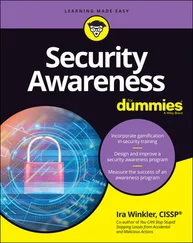When people talk about employee, customer, and other user stupidity, they are often thinking of the actions those users take that cause damage to your organization. In this book, we refer to that as user-initiated loss ( UIL ). The simple fact is that a user can't initiate loss unless an organization creates an environment that puts them in a position to do so. While organizations do have to empower employees, customers, and other users to perform their tasks, in most environments, there is little thought paid to proactively reducing UIL.
It is expected that users will make mistakes, fall for tricks, or purposefully intend to cause damage. An organization needs to consider this in its specification of business practices and technological environments to reduce the potential for user-initiated loss.
Even if you reduce the likelihood for people to cause harm, you cannot eliminate all possibilities. There is no such thing as perfect security, so it is folly to rely completely on prevention. For that reason, wise organizations also embed controls to detect and reduce damage throughout their business processes.
How Smart Organizations Become Smart
Consider that large retail stores, such as Target, have a great deal to lose from a physical standpoint. Goods can be physically stolen. Cashiers can potentially steal money. These are just a couple of common forms of loss in retail environments.
To account for the theft of goods, extensive security controls are in place. Cameras monitor areas where goods are delivered, stored, and sold. Strict inventory control systems track everything. Store associates are rewarded for reporting potential shoplifters. Security guards, sometimes undercover, patrol the store. High-value goods are outfitted with sensors, and sensor readers are stationed at the exits.
From a cash perspective, cashiers receive and return their cash drawers in a room that is heavily monitored. They have to “count in” the cash and verify the cash under the watchful eyes of the surveillance team. The cash registers keep track of and report all transactions. Accounting teams also verify that all cash receipts are within a reasonable level of expected error. Also, as important, the use of credit cards reduces the opportunity for employees to mishandle or steal cash.
Despite all of these measures, there are still losses. Some loss is due to simple errors. A cashier might accidentally give out the wrong change. There might be a simple accounting error. Employees might figure out how to game the system and embezzle cash. Someone in the self-checkout line might accidentally not scan all items. Criminals may still be able to outright steal goods despite the best controls. Regardless, the controls proactively mitigate and detect large amounts of losses. There are likely further opportunities for mitigating loss, and new studies can always be consulted to determine varying degrees to which they might be practical.
An excellent example of an industry that intelligently mitigates risk is the scuba diving industry. Author Ira Winkler is certified as a Master Scuba Diving Trainer and first heard the expression “you can't stop stupid” during his scuba instructor training. The instructor was telling all the prospective instructors that there will always be some students who do not pay attention to safety rules. It is true that scuba diving provides for an almost infinite number of ways for students to do something potentially dangerous and even deadly.
Despite this, scuba diving is statistically safer than bowling. When you consider how that may be, you have to understand that most scuba instruction involves safety protocols. Reputable dive operators are affiliated with professional associations, such as the Professional Association of Diving Instructors (PADI). PADI examines how dive accidents have occurred and works with members to develop safety protocols that all members must follow.
For example, when Ira would certify new divers, all students had to take course work specifying safe diving practices. They also had to go through a health screening process and demonstrate basic swimming skills and comfort in the water. They then had to demonstrate the required diving skills in a pool.
When it comes to certifying people in open water, all equipment is inspected by the students and instructors prior to diving. The potential dive location is chosen based upon the calmness and clarity of the water and limited depth so that students don't accidentally go too deep. Before the dive, there is a complete dive briefing, so students know what to expect, as well as safety precautions and instructions about what to do if a diver runs into trouble. The instructors are familiar with the location and any potential hazards. The number of students is limited, and dive master assistants accompany the group as available to ensure safety. Additionally, instructors are required to ensure there is a well-equipped first aid kit, an emergency oxygen supply, and information about the nearest hospital and hyperbaric chamber.
To become an instructor, Ira went through hundreds of hours of training, especially including detailed training about how to handle likely and unlikely problems. This training includes extensive first aid training. From a risk mitigation strategy, instructors maintain personal liability insurance. Similarly, the sponsoring school maintains liability insurance while also paying for supplemental insurance to cover potential injuries to students. The dive facilities, be they pools, boats, quarries, or so on, also maintain liability insurance.
Essentially, PADI and other professional associations have proactively examined where potential injuries may occur and determined how to prevent them as best as possible. Although some accidents will inevitably occur, there is extensive preparation for those incidents, and the result is that diving is a comparatively safe activity.
Not All Industries Are as Smart
Retail loss prevention and dive instruction have clearly created comprehensive strategies for preventing and mitigating loss that accounts for human error and malfeasance. Unfortunately, many industries, and ironically even many practices within the same industries that are otherwise relatively secure, are not dealing with human error well. For example, Target, which generally has an outstanding loss prevention practice, failed when it came to a data breach where 110,000,000 credit records were stolen.
When an organization fails to account for humor error and malfeasance, and fails to put in sufficient layers of controls, the losses can be devastating. When organizations fail to implement an effective process of risk mitigation to account for user-initiated loss, there is a great deal of blame to go around, but organizations tend to point to the “stupid user” who made a single error.
No case is more notorious for this than the massive Equifax data breach. When Richard Smith, former CEO of Equifax, testified to Congress regarding the infamous data breach, he laid the blame for the data breach squarely on an administrator for not applying a critical patch for a vulnerability in a timely manner. Not immediately applying a patch is not uncommon for organizations the size of Equifax. However, a detailed investigation showed that there was a gross systemic failure of Equifax's security posture.
After all, not only did Equifax allow the criminal in, the criminal was able to explore the network undetected for six weeks, breach dozens of other systems, and download data for another six weeks. The attack was detected only after Equifax renewed a long-expired digital certificate that was required to run a security tool.
This type of scenario is common in computer-related incidents. Whether it is the failing of an individual user or someone on the IT team, a single action, or failure to act, can initiate a major loss. However, for there to be a major loss, there has to be a variety of failures to allow an attack to be successful.
Читать дальше

![Сьюзан Кейн - Quiet [The Power of Introverts in a World That Can't Stop Talking]](/books/33084/syuzan-kejn-quiet-the-power-of-introverts-in-a-wo-thumb.webp)










